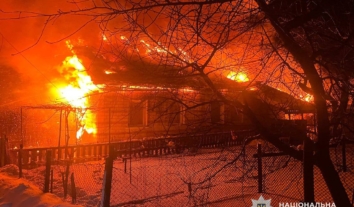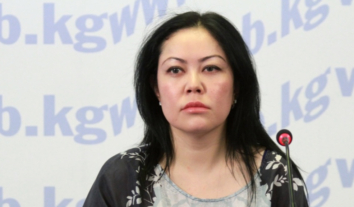SBU closes the provider who has not blocked Russian websites?
On the morning of June 1, the Security Service of Ukraine conducted searches at the offices of the well-known Internet provider Wnet and its partners.

In particular, provider Domonet reported about the search at the Bohdan Khmelnytsky Street, 50b in Kyiv.
“Absolutely all people were evacuated from the building at a gunpoint. Nobody is allowed to leave the territory, everyone who was on the territory of the building are now “hostages”, even subscribers. They do not allow to leave even for ambulance that was allowed to enter the territory, since there is a pregnant woman who many need help”, – said in a message on Domonet’s website.
Oleksandr Fedienko, Head of the Ukrainian Internet Association, is present at the building where the search is conducted and he wrote on his Facebook page that neither lawyer, nor journalists are allowed to enter the search site. According to him, the search is also conducted at the house of Oleksiy Kleshchevnikov, owner of the company.
In addition, Fedienko reported that even during the search of the building of the company’s office, clients began to approach it and complain on the loss of the internet.
He added that the provider serves many government agencies, including the Passport Office, Visa Application Centers, as well as several departments of the Verkhovna Rada and the Cabinet of Ministers.
Later on June 1, users complained on the lack of internet in various parts of the city on the web-pages of the provider and pages of its providers on Facebook. In particular, clients of the Domonet from the Minskyi Masyv residential area in Kyiv complained on the unavailability of Internet until the morning of June 2, and some subscribers complained about the lack of Internet even after that.
As reported by the SBU on its official website, a criminal proceedings was initiated against the company under p.3 Article 110-2 of the Criminal Code of Ukraine (financing of actions, committing with the aim of forcible change or overthrowing of constitutional order or capturing of state power, change of territorial boundaries or state border of Ukraine).
According to the SBU, Wnet carried out illegal illegal traffic routing to temporarily occupied territories of Crimea for the benefit of the Russian special services.
According to the SBU, the FSB of the Russian Federation has planned to receive access and record data from Ukrainian segment of provider’s network via illegal traffic routing to annexed Crimea.
The SBU officials have also established that the RF FSB in the Crimea, the RF Voentelecom and pseudo-state telecommunications agencies received Internet services by means of traffic, received from Ukrainian provider through trunk channel.
“The law enforcers have also established that the management of company has not blocked the users’ access to the Russian Internet resources and services, which are on the sanctions list”, – said in the statement of the SBU.
The SBU noted that the telecommunication equipment and documentation were seized from the office of the provider for the time of the investigation.
At the same time, the company denies such accusations.
“As for the previous information published on the SBU website, according to our estimation, it is biased and is untrue. These are the softest wording that we could find”, – noted on the Wnet website.
The company also recalled that on May 17, after receiving a letter from the National Security and Defense Council of Ukraine (NSDC) with recommendations to block the banned Russian resources we wrote in response with request to clarify the blocking mechanism.
“The national IP-operator Wnet is ready comply with the Decree of President Petro Poroshenko № 133/2017 of May 15, 2017, “On Imposition of Personal Special Economic and Other Restrictive Measures (#sanctions)”, which was put into effect by the decision of the NSDC of Ukraine on April 28, 2017.
Currently, the mechanism regarding the restriction of access of Internet users to banned resources and services is not clearly defined and described in Decree № 133/2017, nor it is defined in the Law of Ukraine “On Sanctions”.
Internet-company Wnet will determine further steps and additional resources for the implementation of this Decree depending on the mechanism chosen by the government for the implementation of this ban”, – said in the message, which was published on the website of the company and its partners, in particular, on Domonet.
In turn, owner of the company Oleksiy Kleshchevnikov in the commentary to liga.net noted that he regards the searches as personal pressure. He also assumed that it could be an attack of competitors.
Wnet employees, who were contacted by the editorial staff of the liga.net, deny the accusations of the SBU and the Prosecutor’s Office.
“We do not have main channel to Crimea. One of the proof provided by the SBU is the fact that the IP-address, which is supposedly located in Crimea, is accessible from our network, which is complete lack of understanding of the global network routing principles”, – as reported by Tatiana Ustinova, HR Director of the Wnet company. According to her, it is impossible to have Wnet IP-addresses in Crimea.
In addition, Internet service market players, who were interviewed by the publication, tend to regard the actions of the Security Service as “demonstrative beating” for strong stand in the situation with the blocking of Russian websites.
As a reminder, on May 16, 2017, President Petro Poroshenko signed a decree that introduced the decision of the National Security and Defense Council of Ukraine to update the list of sanctions against a number of Russian companies, including Aeroflot, VKontakte, Odnoklassniki, Yandex and a number of media resources.
12 journalists from Russia, Bulgaria, Poland, Moldova and Germany, as well as one Ukrainian citizen fell within the sanctions.
Ukrainian human rights defenders and experts believe that the new Decree will damage the freedom of Internet in Ukraine and the image of the country will significantly worsen in the eyes of the international community.
The United States Department of State has also criticized the decision of Kyiv.
On May 29, the SBU conducted searches in Kyiv and Odessa offices of Yandex Ukraine as a part of criminal proceedings under the Article “treason”.
SBU claims that the company’s management has illegally conducted and transferred personal data of Ukrainian citizens to Russia.













